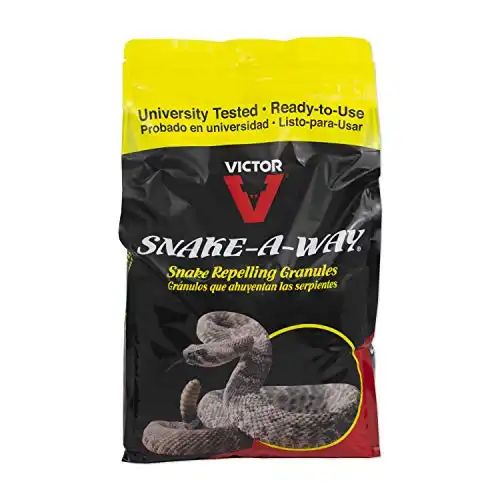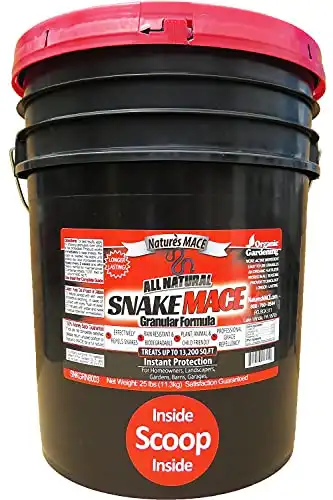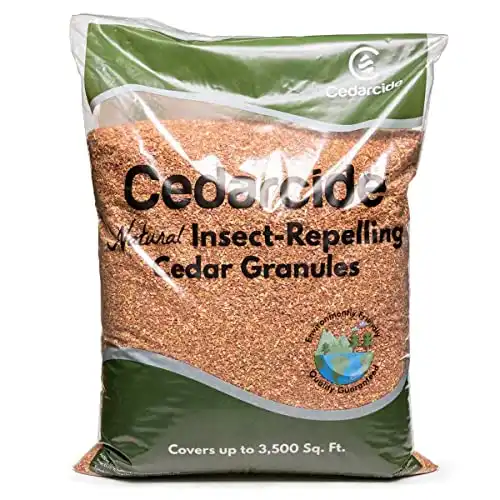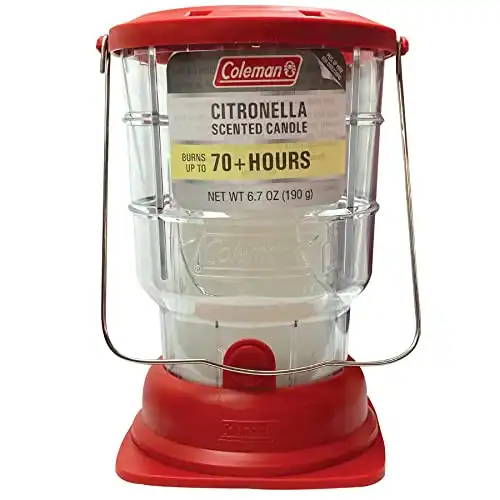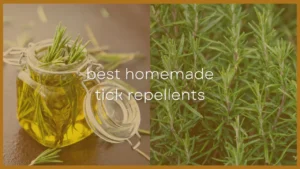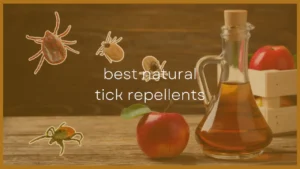Snakes have a very acute sense of smell and the most effective snake repellents take advantage of this to overwhelm snakes with smells they don't like and this helps to keep them away.
I know that there are many smells snakes hate and avoid but I wonder which ones are most effective as snake repellents?
Smells that snakes hate and avoid are vinegar, ammonia and sulfur. Others include certain essential oils (like cinnamon, cloves and peppermint), certain plants (e.g. mugwort or lemongrass) and garlic.
If you want to harness the effectiveness of these snake-repelling products, it’s good to know how to use them and where.
1. White Vinegar
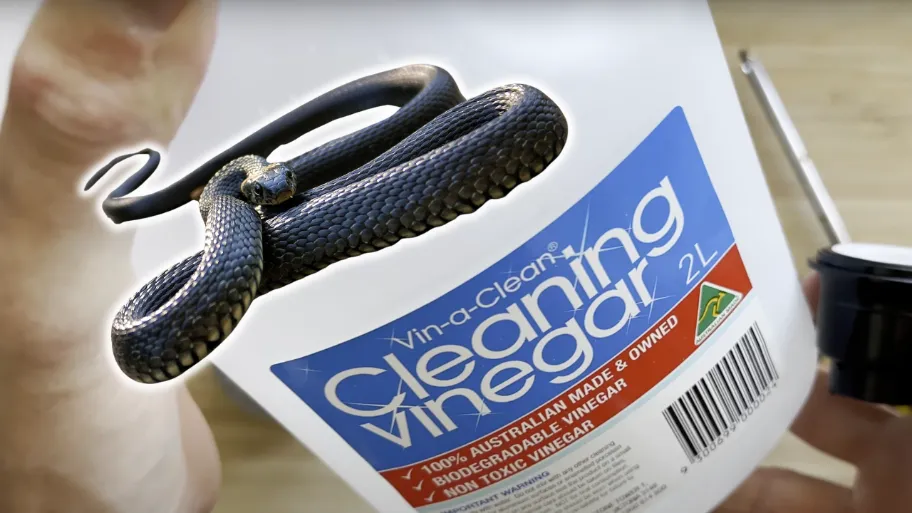
Vinegar certainly helps to keep snakes away. Maybe I'm personally part snake because for me I hate the smell of vinegar, but I know other people who absolutely love it.
Vinegar has a potent, acidic smell that can easily overwhelm a snake’s sensitive sense of smell.
Brown and white vinegar are both effective but I prefer white vinegar because I can also use it to clean my camping stove and it doubles as a bug repellent when hiking and I’ve forgotten my bug spray.
Brown vinegar also has more sugar, attracts ants and can stain lightly-colored surfaces. I like that you can buy white vinegar in bulk and then decant it into smaller spray bottles.
The downside of using vinegar as a snake repellent is that the smell dissipates rather quickly and you need to reapply it daily or after rains in order for it to be effective. Other commercial snake repellents can work for up to 2-3 months before you need to apply it.
To use white vinegar as a snake repellent, simply spray the surrounding area once a day.
2. Ammonia
Like humans, snakes find the smell of ammonia too powerful and will actively move away from it.
Ammonia is an effective snake deterrent but because it’s toxic, you should avoid applying it directly to vegetation or places where animals and kids can come into contact with it.
Before leaving on a camping trip, I like to soak some kitchen towel in ammonia and then place it in a ziplock bag. When I arrive at my campsite, I open it to deter snakes.
3. Sulfur
Sulfur is another strong and unpleasant smell that snakes hate and will avoid.
Fortunately, it’s the main active ingredient in many commercial snake repellent products, such as Snake A Way from Amazon, which is also EPA-approved.
These granules begin working immediately to repel venomous and non-venomous snakes. The granules temporarily disrupt snakes’ olfactory sense organ, sending them in search of fresh air.
One application lasts for up to 2-3 months. Reapply after heavy rain for best results
4. Certain Essential Oils
If you’re looking for a natural snake deterrent, using certain essential oils is very effective.
In fact there are quite a lot of commercial snake repellents which use essential oils as the primary snake deterrent. They usually combine a variety of essential oil smells that snakes don't like in order to be effective.
Peppermint
Peppermint is my top essential oil choice for repelling snakes because it also deters rodents, which are a snake’s main food source.
Eliminating rodents from your property or campsite is an indirect way or keeping snakes away and, when used in combination with a smell that snakes hate, it can be highly effective.
You can use peppermint oil in various ways:
- Spraying the surrounding vegetation
- Planting peppermint
- Using a commercial snake repellent that contains peppermint essential oil
For example, Snake Mace from Amazon contains various essential oils and comes in a bulk container.
Snake MACE formula is scientifically backed to have more active ingredients than any other snake repellents. It has the power and strength to completely repel snakes from your home, garden, yard, etc.
Features all natural ingredients, is safe to use and can provide year round protection no matter the season.
Cinnamon
Cinnamon is a very versatile method of repelling snakes because you can use the essential oil itself, cinnamon powder or sticks.
It’s often mixed with cloves and is safe to apply to vegetation and won’t harm your pets or any nearby wildlife.
If you want to use it when camping, decant some cinnamon and cloves essential oil into a small spray bottle and use it as needed at your campsite.
Cloves
Cloves essential oil has a smoky, woody smell that snakes will avoid.
It’s best used when mixed with other essential oils (like cedarwood or cinnamon) and applied directly to the area you don’t want snakes to enter.
Cedarwood
Cedarwood essential oil has a mild scent that snakes hate but, like cloves, it’s best used when mixed with other essential oils or with lime juice.
You can purchase cedarcide granules which are effective for repelling fleas, mosquitos, mites, ticks and ant and could also be effective at repelling snakes.
Citrus
Snakes shy away from citrus-based essential oils, such as citronella, orange or lime. You can combine lime essential oil with any of other others in this list.
Citronella oil is particularly useful when camping because you can also use it to keep bugs away. You can burn citronella candles or use citronella-based lamp oil in your camping lantern.
Coleman Citronella Camping Candle from Amazon burns for over 70 hours and comes in a handy lantern container to help you keep bugs and snakes away when camping.
Long lasting candle uses natural citronella oil to enhance your outdoor experience and keep away mosquitos and other pests.
5. Certain Plants
If you want to keep snakes out or your yard, consider introducing some plants with smells they hate:
- Lemongrass
- Mother-In-Law’s Tongue
- Marigolds
- Basil
- Mugwort
- Alliums (or plants from the onion family, such as green onions)
For maximum effectiveness, plant these around the entire perimeter of your property.
6. Garlic
Snakes don’t like the smell of garlic and will avoid it. To use it as a snake deterrent, use garlic essential oil, introduce garlic plants to your yard, or make a DIY snake deterrent.
For a homemade garlic snake deterrent, combine a few tablespoons of crushed garlic cloves with a cup of water and spray it around your property’s perimeter.

